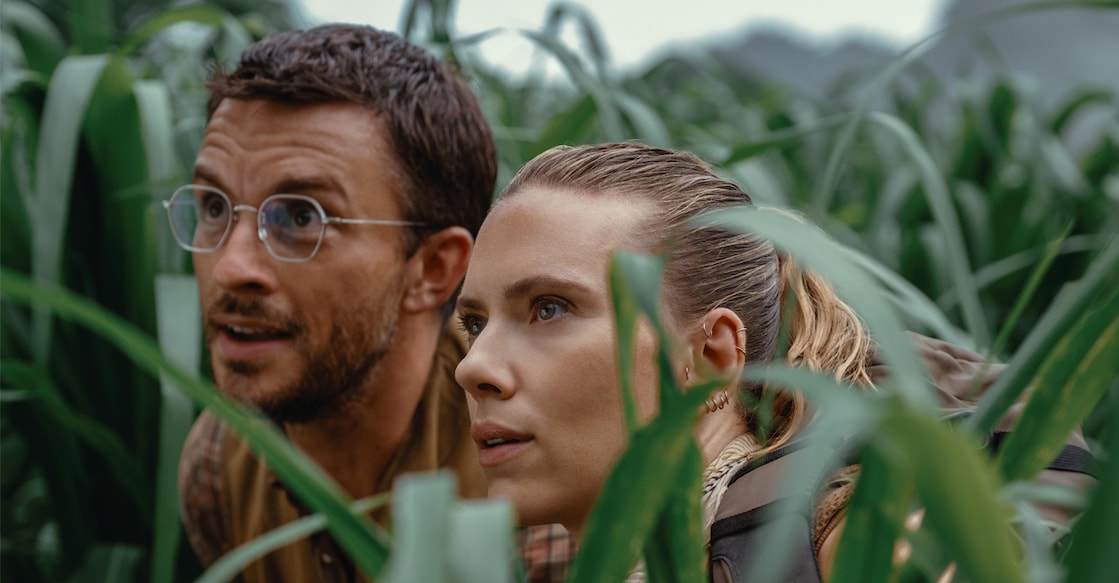More stars, bigger dinosaurs, same old story, 'Jurassic World: Rebirth' is a stylish repeat

Mail This Article
There’s a growing trend in Hollywood where sequels and legacy reboots double as tributes to their iconic predecessors. Films like 'Final Destination: Bloodlines' and 'The First Omen' tap into that wave of nostalgia, blending old-school thrills with contemporary updates. 'Jurassic World: Rebirth', directed by Gareth Edwards, is the latest to join this lineup.
After six films in the franchise, three in the Jurassic Park trilogy and three in the Jurassic World series, Rebirth attempts to chart a new course. While it introduces a standalone story, it still feels like a reimagined version of the original, echoing many of the familiar beats that made 'Jurassic Park' a classic.
More than 30 years after dinosaurs first stomped across cinema screens, Rebirth poses a big question: can the thrill still survive extinction?

Surprisingly, before the dinosaurs even make their entrance, it’s the casting that grabs attention. Scarlett Johansson, Mahershala Ali, and Jonathan Bailey bring undeniable star power. Scarlett, in particular, carries over her Black Widow charisma, and together, the trio commands the screen in a way that immediately elevates the material, even for audiences who’ve been through six rounds of dinosaur drama already.
The story picks up five years after 'Jurassic World: Dominion'. Dinosaurs are no longer front-page news. Most have retreated to remote equatorial zones, clinging to what little remains of their natural environment. In this evolved world, we meet Zora Bennett (Johansson), a covert ops specialist; Dr. Henry Loomis (Bailey), a driven palaeontologist; and Duncan Kincaid (Ali), the team leader. Their mission? Retrieve DNA samples from three massive dinosaurs, representing land, sea, and air, for a revolutionary heart disease treatment.
It’s an interesting twist. Dinosaurs aren’t just spectacles or threats anymore, they’re part of science, commerce, and even healthcare. This quiet normalisation of the prehistoric is perhaps the film’s most interesting narrative shift.

Still, for all its new context, Rebirth doesn’t deviate far from the original formula. The structure remains predictable: humans are drawn in by curiosity, get a taste of danger, marvel at majestic herbivores, and ultimately face off against the franchise’s signature apex predators. It’s a pattern we’ve seen before, and while the execution is polished, it doesn’t surprise. In the end, Rebirth feels more like a respectful retread than a bold reinvention.
That said, what does work, works well. The sound design and visual effects are top-tier. The film knows how to build tension, particularly in the lead-up to key action sequences. The Mosasaurus boat chase is a genuine highlight; fast, terrifying, and beautifully crafted.
The introduction of genetically engineered, malfunctioning dinosaurs adds a dash of chaos and unpredictability. And the final creature? It pushes the limits of what we think of as a dinosaur, veering into full-blown monster territory. It’s bizarre and a little ridiculous but also undeniably fun.
Where the film stumbles is in its characters. From the moment the cast is introduced, you can tell who’s not going to make it, the writing makes it too obvious. A civilian family unexpectedly joins the main mission and delivers decent performances, but their arc adds nothing new. It all unfolds exactly as expected.
And that’s where Rebirth truly pales in comparison to its predecessor. What made the original 'Jurassic Park' so iconic wasn’t just the dinosaurs, it was the sense of awe and suspense, carefully orchestrated by Spielberg. The film knew when to hold back, when to let the wonder sink in, and when to unleash chaos. Its characters were fully-formed, its pacing meticulous, and its thrills earned, not manufactured.
'Jurassic World: Rebirth' may roar loud, but it rarely surprises. It's a visually stunning, competently acted return to a beloved franchise, but one that struggles to find a truly new heartbeat beneath all the nostalgia.


